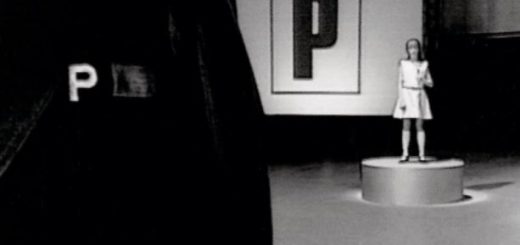Threads by Portishead Lyrics Meaning – Unraveling the Enigma of Self-Doubt in Song
Lyrics
Whenever I take a choice it turns away
I’m worn, tired of my mind
I’m worn out, thinking of why
I’m always so unsure
I battle my thoughts I find I can’t explain
I’ve traveled so far but somehow feel the same
I’m worn, tired of my mind
I’m worn out, thinking of why
I’m always so unsure
I’m always so unsure
I’m worn, tired of my mind
I’m worn out, thinking of why
I’m always so unsure
I’m always so unsure
I’m always so unsure
I’m always so unsure
I’m always so unsure
I’m always so unsure
I am alive when I sleep
Why am I not in all that I got?
I can’t find no one to blame
Stand, stand, damned one
Damned one
Damned one
Damned one
I am one
Damned
One
Where do I go?
At the heart of Portishead’s hauntingly beautiful oeuvre lies ‘Threads,’ a track that weaves a complex tapestry of emotion, introspection, and the quintessential human experience of uncertainty. Through their subtle yet powerful delivery, Portishead masterfully captures a feeling that resonates with many—a continuous grappling with self-doubt and the weariness it brings.
Beyond its chilling beat and ethereal soundscapes, ‘Threads’ is a stark exploration of the psyche, a journey that probes the depths of weariness and restlessness. But to fully appreciate the artistry of Portishead, we must dive deeper into the lyrics, deciphering the silent cries and whispers that lie within.
The Echo Of Incessant Uncertainty
Portishead’s ‘Threads’ sets in motion a recurring motif of self-doubt. The expressiveness of the lyrics ‘I’m worn, tired of my mind / I’m worn out, thinking of why / I’m always so unsure,’ speaks to a universal human struggle. It’s not just a commentary on the exhaustion of indecision; it resonates with the fatigue of the modern soul that is constantly seeking meaning, relentlessly attempting to rationalize experiences, and desiring to find a solid ground in the shifty sands of existence.
This song paints a picture of an internal battle that is both deeply personal and universally relatable. The quest for assurances and the desire to grasp the immutable truth is mirrored in the cyclical nature of the mournful refrain. Each repetition feels like another layer of the mind’s fabric being worn away, revealing the bare essence of the human condition.
‘Damned One’ Decrypted: The Hidden Meaning Behind the Repetition
Within ‘Threads,’ a single phrase echoes with the weight of a thousand words—’Damned one.’ This self-address might on the surface be interpreted as a self-deprecating critique. However, its repetition serves as a mantra, a striking invocation of the self that is both victim and accuser. The repetition suggests a ritualistic confrontation with one’s own sense of failure or desolation, and the labeling of oneself as ‘damned’ signifies the internalization of an existential guilt or inadequacy.
By using this loaded term, Portishead taps into the deep-seated angst that plagues the human spirit, the innate sense that, despite our best efforts, we may always be bound to the wheel of uncertainty and self-inflicted judgment. Through the medium of music, these words transcend mere vocabulary, becoming an anthem for the bewildered soul.
Duality of Consciousness: Awake though Asleep
One of the most poignant lines in the song, ‘I am alive when I sleep,’ raises a conundrum about the state of being. It suggests that true solace and the feeling of ‘living’ are found in the escape that sleep offers. There’s a duality here that explores the dichotomy between consciousness and unconsciousness, hinting at how one may feel most engaged with life when they’re removed from the overstimulation and noise of everyday existence.
This line hints at a deeper narrative—possibly the paradox of existence where one feels most in touch with their essence when they are detached from the material world and societal expectations. Sleep becomes a sanctuary, a refuge where we are freed from the relentless uncertainty that plagues our waking hours.
The Quest Without a Destination
The lyrics open with a candid confession of the futility that accompanies every decision: ‘Better if I could find the words to say / Whenever I take a choice it turns away.’ There’s a profound sense of aimlessness here, a declaration that despite the perpetual motion of decision-making, the destination remains elusive. The journey feels Sisyphean, as choices are made and paths are taken, only to lead back to the same existential crossroads.
This mirrors the human quest for purpose against an often indifferent universe. With ‘Threads,’ Portishead articulates the inner monologue of every person who has ever felt as though they are navigating through the fog of existence, uncertain of where they are headed, but resolute in their endeavor to continue.
Memorable Lines: The Lyrical Cries of the Soul
Portishead’s music has always been known for its evocative lyrics, and ‘Threads’ is no exception. The line, ‘I can’t find no one to blame,’ is particularly powerful in reflecting the internalization of blame that accompanies self-doubt. It’s a deeply human reflex to look outward for the source of our torment, but here, the song delves into the psyche to reveal a truth—often, the struggle is with the self, and there is no external antagonist in this narrative.
This line connects to the theme of personal accountability and the tortured process of self-reflection. It’s a line that remains with the listener, nudging them to consider the ways in which they might be their own most potent adversary, caught in the web of their firespun thoughts and haunting indecision.








